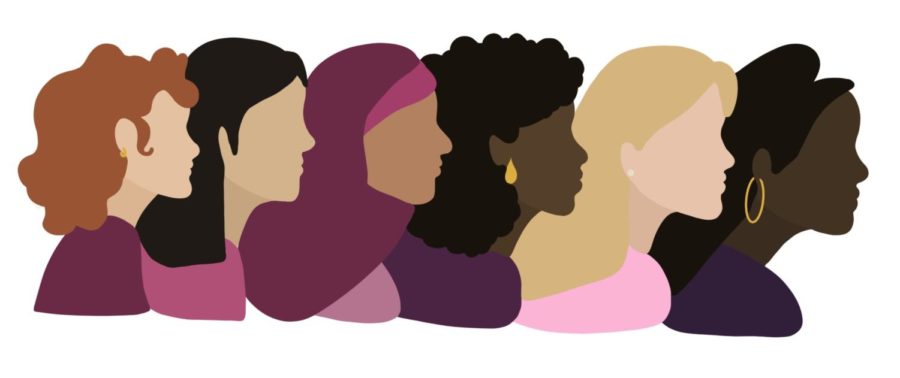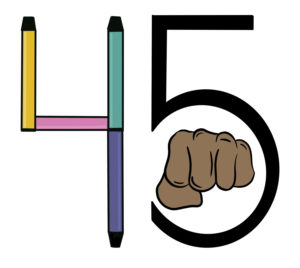Marching forward
This month acknowledges women’s history
photo illustration
March 10, 2023
It’s finally March. The sun starts warming the cold ground, last year’s dead greenery develops into flower buds and the animals awake and rise out of hibernation. Spring is a season of significant change; constantly evolving and becoming more beautiful and alive with each passing second. This symbolically also represents the other monumental purpose of March: women’s history month.
In 1977, the UN dedicated March 8 to International Women’s Day. This celebration was celebrated globally for years, yet it was eventually decided that 24 hours was not enough to acknowledge all of the historically overlooked battles that women had to fight and the hard work they put in to get the world as advanced as it is today. Then, women got a week in March before finally getting the whole month in 1987.
“I think it’s important to recognize women’s history month because women have done so much through the years for our society and for our country,” academic advisor Jennifer Cannon said. “Our country would not be as progressive if it had not been for the contributions that women contributed.”
The advancements that women have gifted society date back to the start of time. However, their achievements and even the month as a whole are still often overlooked.
“I did not know March was women’s history month,” senior Nazaret Vasquez said. “I don’t think there’s much awareness brought to it. We don’t really talk about women’s rights besides suffrage. Most history teachers are males. Maybe they would feel uncomfortable teaching that. We could acknowledge it more just to bring more awareness.” We don’t really talk about women’s rights besides suffrage. Most history teachers are males. Maybe they would feel uncomfortable teaching that. We could acknowledge it more just to bring more awareness. — Nazaret Vasquez
Men and women alike both equally share the responsibility of not letting women’s history die out. It does not solely fall on one gender to hold society accountable; it takes everyone.
“Women are an important part of our society, and it’s good to respect them,” junior Ean Sharp said. “I do feel that women’s history is often overlooked. Not that it isn’t important, it just is overlooked due to other matters that people might deem more important.”
Women have come a long way in the past century. A hundred years ago women couldn’t vote, easily divorce or obtain birth control, publically smoke or wear pants, go anywhere unattended and much more. Although women have conquered many giant obstacles, there is still more we can do in 2023 and on, starting with appreciating women’s history month more.
“I think that we need to advertise and show all the different accomplishments of women,” Cannon said. “I think we need to do that more often–show what we’ve done and what we’re about to do. That way the world would be able to see all the different accomplishments of women and what we’re doing now.”
Women are still far from the finish line of perfect equality. Sexism is still apparent in the workforce, wage gap, stereotypes, double standards, politics and unfair expectations. Just because the end is still in the distance, does not mean that women are planning on giving up anytime soon, which is something worth celebrating this women’s history month.
“I do not think that women will ever get tired of fighting for equal rights because I think it opens the doors for our younger generation of women to reach their potential,” TISD police department sergeant Gisela Altamirano said.





















